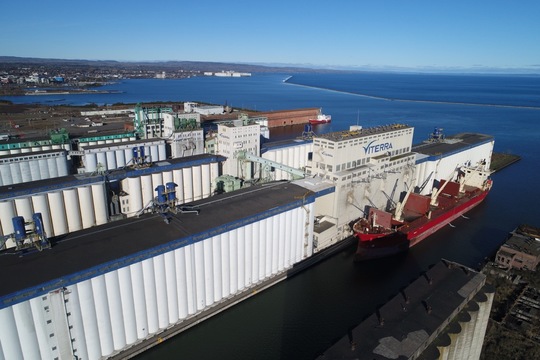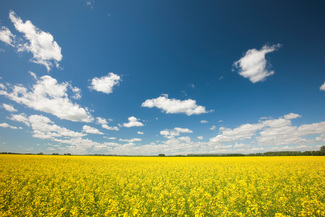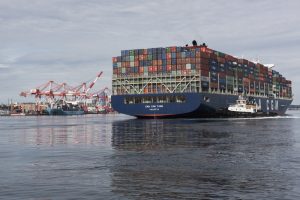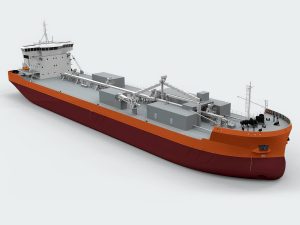By Leo Ryan
Editor
Maritime Magazine
Severely hit by February’s three week Indigenous rail blockades over a pipeline project in British Columbia, the Canadian agri-food industry – a vital pillar of Canada’s economy – is being further hammered by the ripple effects of the global coronavirus pandemic. This is no small matter for the world’s fifth largest agri-food exporter whose sales abroad reached a record $60 billion in 2019.
If last year was a bumpy road for Canadian agri-food exporters, 2020 is hardly looking much better. Already facing global geopolitical issues, increased protectionism and mounting modernization challenges to remain competitive, Canada’s agri-food industry is now grappling with rising gridlocks in its meat and grain supply chains.
Some sources estimate it could take up to six months to eliminate backlogs. The China factor has been the overwhelming catalyst. In January, most factories were shut down across China’s provinces in an effort to control the coronavirus epidemic and many remain shuttered today. This led ocean carriers to “blank” sailings from China to North America.
The crisis for the agri-food exporters has been especially visible on the West Coast, where some 50 vessels remain idle at anchorages at the ports of Vancouver and Prince Rupert. There they are waiting to load or unload cargo destined for and coming from China-led Asia. In addition, international logistics companies currently report declines of as much as 85 % of containerized Chinese imports arriving in the Port of Vancouver, Canada’s leading Pacific gateway.
Farmers across Canada are concerned not just about moving crops out to markets but receiving vital supplies like fertilizer, seed and propane in order to bring spring planting. Their financial health is also negatively impacted by delays in payment as crops sit in parked freight trains. Last week, Canadian National Railway put this number at the 10,000 rail cars, or the equivalent of more than one million tonnes. This follows a banner year in 2019 for both CN and CP in Canadian grain supply chains “despite the challenging economic and environmental conditions,” stated Joan Hardy, CP Vice-President sales and marketing, grain and fertilizers.
According to Wade Sobkowich, Executive Director of the Western Grain Elevator Association, the delays in shipping are costing up to $10 million a day.
Paradoxically enough, strong global demand for Canadian grain generated a new record of 28.3 million tonnes for grain, specialty crops and feed through the Port of Vancouver in 2019. Wheat alone climbed by nearly 16% to 11 million tonnes. The port saw trade with China, its leading partner, fall 14% as China cut wheat and canola shipments from Canada amidst diplomatic tensions. Robin Silvester, president and ceo of the Vancouver Port Authority, is hopeful that a recent mild “thawing” between the U.S. and China could benefit Canadian bulk exports to a certain degree.
Up till late February, grain shipments to Canadian ports had plunged by 1.2 million tons. “At some point and time, we might make this up, but it will be way into summer before we do,” suggested Mark Hemmes, president of Quorum Corp., which monitors grain movements.
The turmoil happened just when the outlook was improving for Canadian pork producers, who had been anticipating a recovery in demand from China after Beijing lifted a four-month suspension on all Canadian meat.
Like their grain counterparts, pork producers depend on rail containers to move meat out of storage facilities for shipments to ports. But with not enough trucks available as alternative modes, processors were running out of storage space to house the backlog.
Canada is the world’s biggest exporter of canola, with 90% of the crop exported. The Canadian Canola Growers Association does not foresee present downtrends receding within a short time.
Assessing the key challenges in 2020, the Canadian Agri-food Trade Alliance (CAFTA) listed an unstable global environment, trade wars and ongoing geopolitical tensions, and non-tariff barriers. And it qualified the loss of functionality last December of the WTO’s Appellate Body as “perhaps the most devastating trade policy development in 2019. Given the vital role the dispute settlement system plays in ensuring the rights of Canadian exporters are protected, this attack on the WTO is yet another blow to the rules-based global trading system.”
Regarding various free trade agreements, CAFTA urges Canada’s parliament to swiftly complete the process of ratification of the Canada-US-Mexico free trade agreement (CUSMA), to expand the CPTPP accord to countries like South Korea, Thailand and Indonesia, and to address significant barriers in the Canada-European Union agreement (CETA) that prevent Canadian agri-food exporters from taking advantage of opportunities. Developments in Ottawa this week suggest that CUSMA ratification should be completed very soon thanks to enough support from opposition parties in the Liberal minority parliament.
Meanwhile, is Canada well-placed to be competitive in the next agricultural revolution? John Stackhouse, who pilots the research of the Royal Bank of Canada on major economic, social and environmental issues, recently acknowledged there have been some promising initiatives like a protein supercluster based in Saskatoon but much needs to be done for Canada to attain the Farmer 4.0 model. “We’ll need a lot more agriculture technology, and a new generation of skills to harness tech platforms, artificial intelligence and advanced machines, from precision drones to robotic harvesters.”
But Mr. Stackhouse has warned that with a historic retirement wave in progress, young Canadians are showing few signs of filling the gap. “By the mid-decade, one quarter of our farmers will be 65 or older. We may be short of 123,000 agriculture workers by the end of the decade.” Photos, Canola Council of Canada and VFPA






